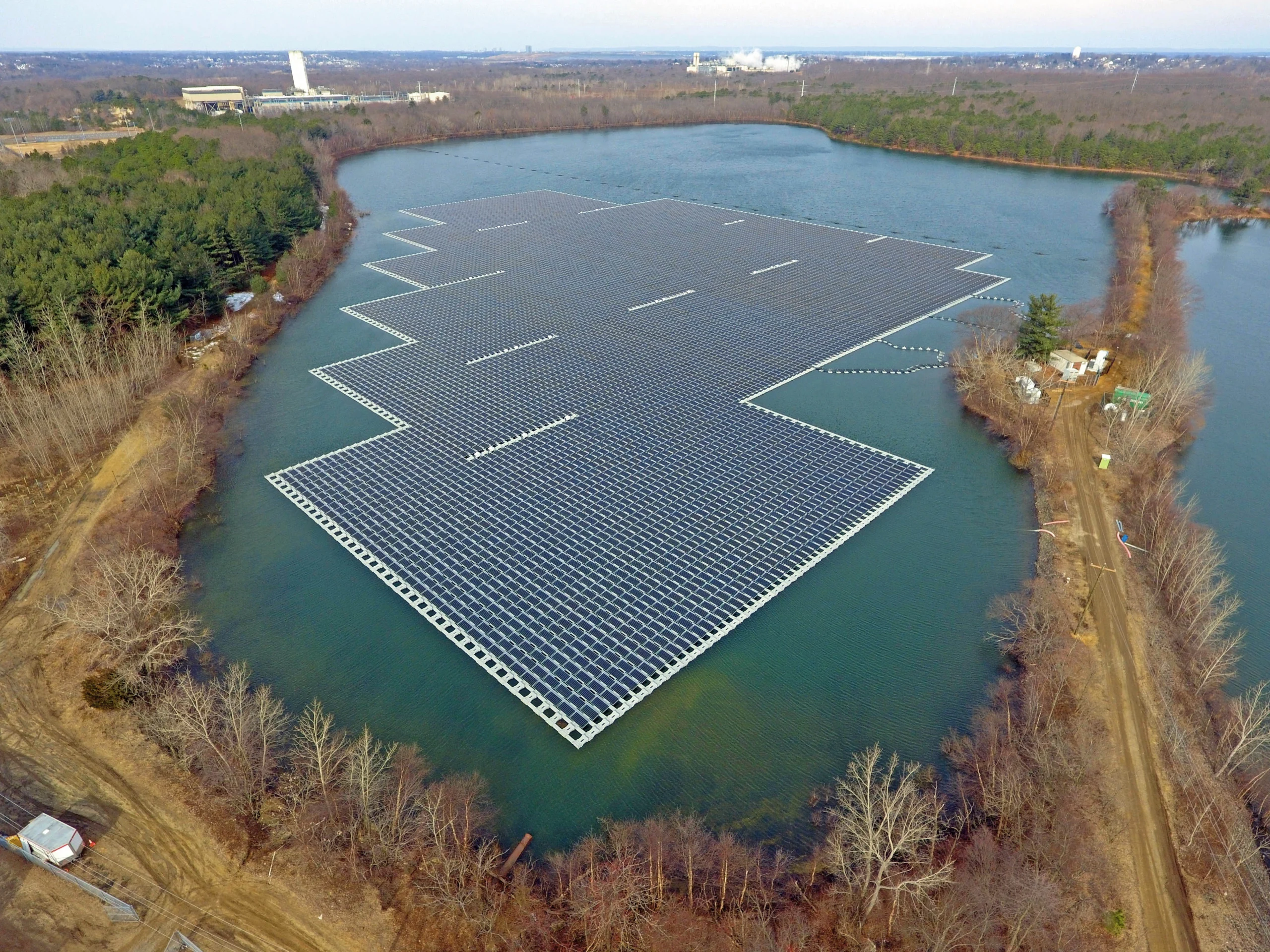By: Kai Wang
The sun shines brightly over a lake, where a cluster of solar panels generates clean energy for nearby communities. These solar panels may look out of place, but these floating solar panels are a stable source of energy for a nearby city.
As the world shifts to cleaner and more sustainable energy sources, new technology has emerged that makes solar power more accessible and efficient. Solar panels, also known as photovoltaic panels, turn sunlight into electricity. Most solar panels, called solar farms, are placed on land in large quantities. Since people have put floating solar panels on water, people call them floatovaoltaics.
Researchers looked at over 100,000 reservoirs worldwide. They figured out how much electricity could be produced yearly by covering 30 percent of the reservoirs with floating solar panels. The floating solar panels would produce twice the amount of energy the United States produces in a year. They would also produce 10 times as much energy as all of the solar power currently being generated in the world.
“This is a strong tool in the toolbox that we can utilize for expanding our photovoltaic portfolio in the U.S.,” said Robert Spencer, a data scientist at the lab and the leader of the research.
Solar panels on the water mean that you don’t need to clear land for a solar farm; this helps fight climate change and protect natural areas for wild animals. Floatovoltaics also limit evaporation from reservoirs. Scientists say that solar panels covering only 30 percent of the reservoirs’ surfaces could save 300,000 people would use in a year.
Although this is great, floatovoltaics aren’t perfect. Covering too much of a reservoir could affect plants and animals in the water. “This gap in our understanding is important to reconcile as floatovoltaics have enormous technical potential,” said Rebecca Hernandez, an assistant professor of earth system science and ecology at the University of California, Davis. It will be important to study how floatovoltaics will affect wildlife in each reservoir.











